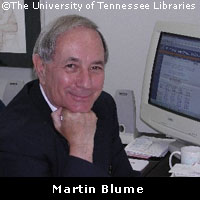More experiments needed to find best open access models
When it comes to open access, one model will not fit all and further experiments are needed to establish which models are most likely to succeed in the long term. This was one of the main messages coming out of a panel discussion on open access during a conference on scientific publishing in the European Research Area (ERA), held in Brussels on 15 and 16 February. While they were broadly in favour of open access, the publishers on the panel pointed out that running a journal costs money and in the end, someone has to pay. 'We are a not for profit publisher, but we are also not for loss!' commented Martin Blume, Editor in Chief of the American Physical Society (APS). Currently two of the APS' nine journals are open access; one is funded by sponsorship from large laboratories such as CERN (European Organisation for Nuclear Research), while the other is funded by the 'author pays' principle. However, scientists who have papers published in the other seven journals are welcome to self archive their articles in their institutions' open-access e-print archives. The British Medical Journal (BMJ) went completely open access for a few years, but the experiment was stopped as the policy led to a sharp fall in the level of subscriptions to the print version of the journal. 'We like the idea of open access but we realised that to survive we needed to close the open access website,' explained Alex Williamson, the BMJ's Publishing Director. They have since introduced an option under which authors can pay for access to their articles to be free online, but uptake of this is very low, with less than 2% of authors choosing to do so. Ms Williamson pointed out that around half of the research papers they receive have not been funded; these include case studies from general practitioners, or research into new surgical techniques from groups of surgeons. Forcing all authors to pay for publication would prevent these valuable papers from being submitted, Ms Williamson noted. 'We need to experiment and see what works and what doesn't,' concluded Ms Williamson. 'We tried open access; it didn't work, so we reversed it.' Norbert Kroo, Vice-President of the Hungarian Academy of Sciences and member of the European Research Council (ERC) and European Research Advisory Board (EURAB), spoke strongly in favour of open access. 'Publishers are for scientists and not the other way round,' he said. He called for the promotion of 'prompt and broad access' to research within EU programmes, and greater coordination on open access between European research funding organisations. The European University Association (EUA) is working to raise awareness of the open access issue among researchers and decision makers in universities. 'The majority of leadership in universities and researchers are largely unaware of what is at stake and what could be done,' said Sijbolt Noorda, Chair of a new EUA Working Group on open access. The aim of the group is to promote the development of well-functioning open access repositories, and encourage business models for publishing based on open access principles. The session concluded with a presentation from Southampton University's Steven Harnad, a long-time advocate of open access. He pointed out that while 'gold' open access (in which articles are immediately available on the publisher's website) was still some way off, 'green' open access (in which authors self-archive their work as soon as possible after publication), was already widely allowed by journals and should be used more. It is 'green' open access which is the focus of the petition for guaranteed access to publicly-funded research results. The petition was presented to EU Research Commissioner Janez Potocnik before the conference. So far around 20,000 individuals and organisations have signed the petition, including Nobel prize winners, leading research organisations, research funders and national academies. Interestingly, 43 publishers have added their weight to the petition, the same number as signed a recent statement voicing their concerns about open access.

